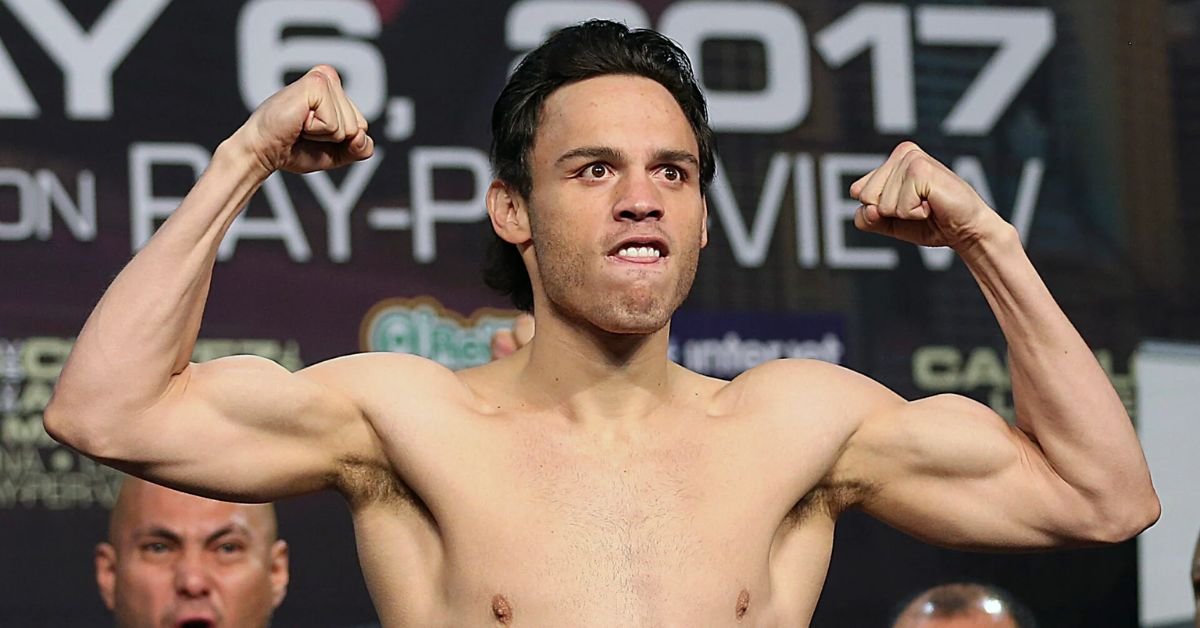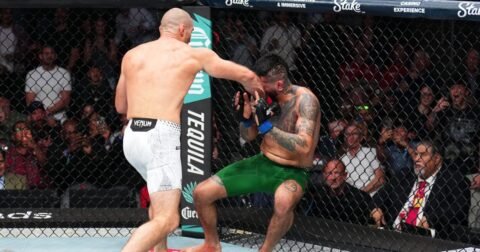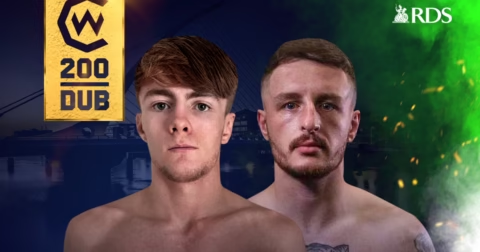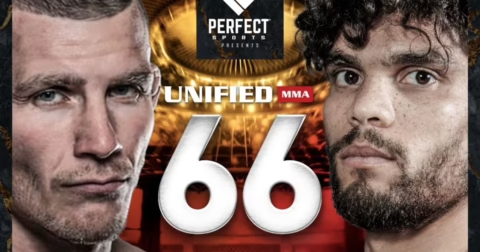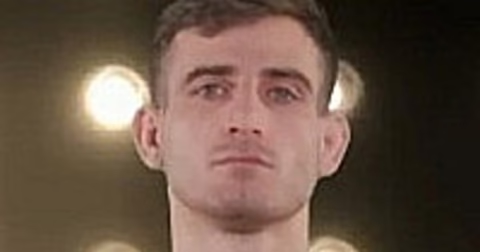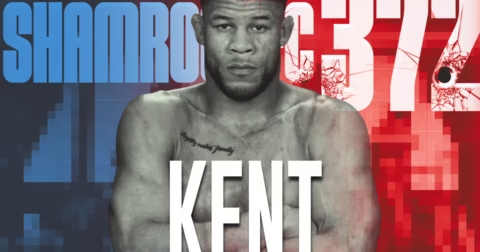Former world champion boxer Julio Cesar Chavez Jr has been deported to Mexico and is now incarcerated in a Sonora prison due to his alleged ties to the notorious Sinaloa drug cartel. Arrested on 3rd July by U.S. Immigration and Customs Enforcement (ICE), Chavez faces significant charges, including trafficking firearms and organised crime involvement; these unfold against a backdrop of a lengthy investigation initiated in 2019. This shocking turn of events not only marks a dramatic fall from grace for the son of boxing legend Julio Cesar Chavez Sr but also raises serious questions about the intersection of sports and crime.
The Boxing Legacy of Julio Cesar Chavez Jr
Julio Cesar Chavez Jr, born to boxing legend Julio Cesar Chavez Sr, began his professional boxing career in 2007 and rapidly gained attention for his skills in the ring. He captured the WBC middleweight title in 2011, demonstrating substantial talent but also facing significant challenges. Throughout his career, he has encountered ups and downs, with 63 fights to his name and a mixed record, notably going 3-3 in his last six bouts against a variety of opponents, including fight sensation Jake Paul.
Chavez Jr’s life has been tumultuous, often marred by controversies outside the ring that overshadowed his achievements. His struggles have included issues with possession of firearms and substance abuse, raising questions about his professional conduct and personal choices. However, many fans still hold onto the hope that he can reclaim glory in boxing. His recent match against Jake Paul on 28th June 2025 solidified his position as a figure of interest in the sport, but performances like these often exacerbate scrutiny regarding his off-ring activities.
ICE Arrest and Cartel Allegations
The recent turn of events has been alarming for Chavez Jr. Following his arrest by U.S. Immigration and Customs Enforcement (ICE) on 3rd July, media reports began to surface about his alleged ties to the notorious Sinaloa drug cartel. This investigation, which reportedly began back in 2019, has raised serious allegations, including trafficking firearms, ammunition, and explosives. Such grave charges have made Chavez a focal point in discussions regarding organised crime and the intersection of sports personalities with illegal activities.
Chavez was detained for 46 days by the U.S. Department of Homeland Security before being deported to Mexico and was subsequently placed in a facility in Sonora. Reports confirm that upon arrival in Mexico, he faced immediate legal repercussions including the execution of an existing arrest warrant. Mexican authorities are under pressure to thoroughly investigate these serious allegations, and President Claudia Sheinbaum has acknowledged his deportation, emphasising the government’s commitment to addressing crime.
Presidential Response and Government Action
President Sheinbaum’s comments regarding Chavez Jr have highlighted the seriousness of the situation. She stated her awareness of his deportation, reflecting the broader implications of Chavez’s case as it intersects with public safety and the government’s efforts to combat drug-related crime. This remark demonstrates the high-profile nature of the case and its significance to Mexican law enforcement priorities.
Additionally, Alejandro Gertz Manero, Mexico’s Attorney General, has been vocal about the ongoing investigation into Chavez’s affiliations. He stated that the authorities are actively working to uncover the extent of Chavez’s involvement with organised crime. Such public disclosures aim to assure citizens that law enforcement is addressing deep-seated issues related to cartel influence and violence in Mexican society.
Previous Legal Troubles and Warning Signs
Prior to his deportation, Chavez Jr encountered significant legal issues that served as warning signs of his escalating troubles. In January 2024, he was arrested for felony gun possession after authorities discovered two AR-style ghost rifles in his possession. This incident demonstrated a pattern of firearms-related violations that would later become central to the more serious charges he now faces.
These previous legal troubles suggest that law enforcement agencies had been monitoring Chavez’s activities for some time before the major arrest and deportation. The progression from domestic firearms violations to international organised crime allegations illustrates the severity of the situation and the potential scope of the investigation.
Impact on Boxing Career and Professional Standing
Chavez Jr’s legacy as a boxer is now intertwined with his legal controversies, raising questions about what his future holds, both personally and professionally. His career achievements, including a noteworthy stint as the WBC middleweight champion, are now heavily clouded by his alleged criminal connections. Analysts speculate how this might affect not only his standing in the boxing community but also his potential for a comeback in the sport.
His recent boxing performance had already shown signs of decline, with losses in three of his last six fights creating questions about his competitive future. The defeat to Jake Paul, coming just days before his arrest, now appears in a different light given the subsequent legal developments. The boxing world had been questioning his commitment to the sport even before these criminal allegations emerged.
The Investigation Timeline and Scope
The investigation into Chavez Jr’s alleged cartel ties reportedly began in 2019, suggesting a multi-year effort by law enforcement agencies to build their case. This lengthy timeline indicates the complexity of the allegations and the thoroughness required to investigate connections to organised crime networks. The charges include not only firearms trafficking but also involvement with explosives and ammunition, suggesting a sophisticated criminal operation.
The Sinaloa cartel connection adds another layer of seriousness to the charges, as this organisation is one of Mexico’s most powerful and violent criminal enterprises. Law enforcement agencies on both sides of the border have been working to dismantle cartel operations, making Chavez Jr’s alleged involvement a matter of significant public interest and security concern.
Cautionary Tale for Professional Athletes
Moreover, Chavez’s situation serves as a cautionary tale about the vulnerabilities athletes may face off the ring. Whilst some may rally behind him to separate the athlete from his alleged transgressions, the realities many face in the world of professional sports suggest that past glories can quickly become overshadowed by new, often unwanted headlines. The boxing world watches with bated breath as his saga unfolds, pondering whether he can rehabilitate his career, or if this marks the end of his time as a competitive boxer.
The case highlights the broader issue of athletes and celebrity involvement in criminal activities, particularly in regions where organised crime maintains significant influence. Chavez Jr’s fall from championship glory to prison cell serves as a stark reminder of how quickly circumstances can change and how past achievements can be overshadowed by poor decisions.
Future Legal Proceedings and Implications
As Chavez Jr remains incarcerated in the Sonora prison, the legal proceedings against him are expected to be lengthy and complex. The charges he faces carry severe penalties under Mexican law, particularly those related to organised crime and weapons trafficking. Legal experts suggest that if convicted, he could face significant prison time that would effectively end any hopes of returning to professional boxing.
The international nature of the case, involving both U.S. and Mexican authorities, adds complexity to the legal proceedings. The cooperation between ICE and Mexican law enforcement demonstrates the seriousness with which both governments view the allegations and their commitment to pursuing justice regardless of the defendant’s celebrity status.

